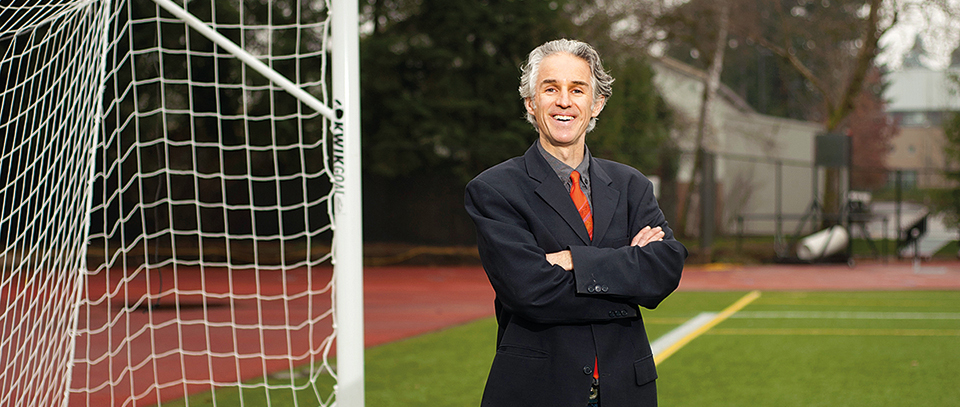Pacific Professor Boykoff in Forefront of Movement Against Tokyo Summer Olympics
 Jules Boykoff, the chair of Pacific University’s Politics and Government Department, isn’t one to bury the lede.
Jules Boykoff, the chair of Pacific University’s Politics and Government Department, isn’t one to bury the lede.
In a March 18, 2020, op-ed in The New York Times, under the headline “Cancel. The. Olympics.,” Boykoff wrote, “For the sake of global public health, the Tokyo 2020 Olympic Games should be canceled.”
And, of course, they were. For a year. Now the delayed games are set to open to mostly empty stadiums and arenas in Tokyo on July 23.
They are going forward despite the fact that the COVID-19 pandemic is surging again in Japan, a heavy majority of the Japanese public disapproves of holding the games, and leading voices including the influential Asahi Shimbun newspaper have asked organizers to cancel them. Critics cite the pandemic, the soaring costs, the extraordinary burdens on the host country and the extravagant requirements imposed by the International Olympic Committee, which seems determined to damn the torpedoes and steam ahead into the glitzy, made-for-television spectacle.
Throughout the controversy, Boykoff has been everywhere. Just this year, he has been cited or interviewed by the BBC, Reuters, the Sydney Morning Herald, the New York Times, NBC, Bloomberg, Time Magazine, the Voice of America, the Washington Post, CNN, CNBC, Democracy Now, the Irish Times — in short, by every outlet looking for informed criticism of the Olympics. His May 11, 2021, New York Times op-ed carries the headline: “A Sports Event Shouldn’t Be a Superspreader. Cancel the Olympics.”
When Boykoff is quoted, the citations usually say something like “Jules Boykoff, professor at Pacific University, expert on the politics of the Olympic Games, and author of four books on the Olympics.” The most recent book, NOlympians: Inside the Fight Against Capitalist Mega-Sports in Los Angeles, Tokyo, and Beyond, was published last year by Fernwood Publishing.
Why He Speaks Out
Boykoff comes by his passion for the subject honestly. He himself is a former Olympic soccer player, a speedy wingback who was inducted into the Wisconsin Soccer Hall of Fame. He says he approaches the Olympics from the bottom up, “unlike some folks that tend to see it from the top down.”
“Approaching it from the bottom up means meeting and working with people who will probably never be able to afford a ticket to the Olympics,” he said.
Boykoff lived in London with his family during the lead up to and during the 2012 London Olympics, and he also lived in Rio de Janeiro as a Fulbright scholar as that city prepared to host the 2016 games.
“I’ve seen with my own two eyes the way that the Olympics affect everyday people in the whole city. I think what I’m doing to try to illuminate some of the negative externalities about the Olympics, chime pretty perfectly with the mission of Pacific, which is to pursue justice in our world.”
The Olympics are front and center this year, but Boykoff’s activism is catholic. He has written or participated in protests about racial justice, climate change, homelessness, media studies and other subjects. His Twitter feed (@JulesBoykoff) offers a window into the energy he brings to issues.
He’s also a poet who has written three full-length books of poetry, and whose work has been published in multiple anthologies and chapbooks. His poem Commandment #8 was designated “Sexiest Poem of 2006” by C.A. Conrad, who described Boykoff’s work as displaying “fearlessness which confronts injustice.”
“commandment #3 being don't covet thy neighbor's spiritual connections with his powerful icon for capitalism or thou shall besmirch thy cattle-tonic glum hopper with unnecessarily forlorn animosity
“aggressive bedazzlement
“anticipatory tenement
“indisputably disputable”
— Excerpt from Commandment #8
“What I’m trying to do is to hold the powerful accountable for their actions,” Boykoff said this week. “I think that is one of the main things that animates me.”


